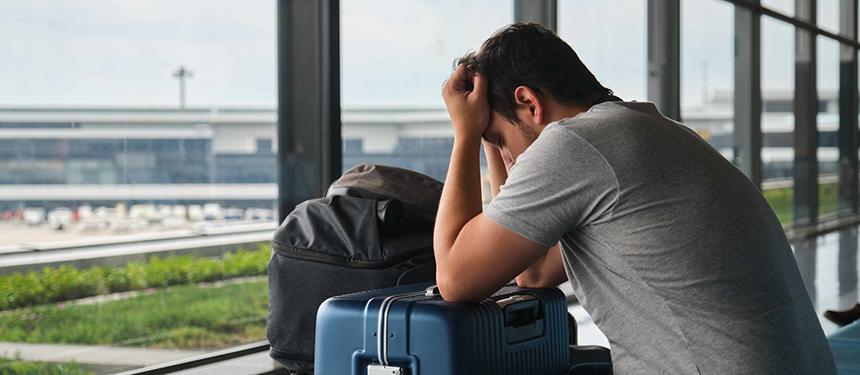Addressing burnout in business travel

In the corporate arena, where the constant hum of jet engines sounds as the anthem of success, business travel has seamlessly integrated itself as a cornerstone of corporate strategy. However, as we reap the benefits facilitated by these journeys, it's essential to consider the psychological effects on frequent flyers.
Unveiling a complex reality
Business trips are opportunities for professional growth, cultural exploration, and networking. Yet, the reality is - business travel, if unchecked, can evolve into a significant source of stress for a mobile workforce, resulting in a profound impact on their wellbeing and overall productivity.
Extensive hours on the road, disruptions to routine, and the inherent lack of control over immediate surroundings, can collectively contribute to the mental and physical strain borne by colleagues on the move. The term "burnout," often dismissed as a corporate buzzword, materialises as a palpable threat when employees are exposed to physical and mental exhaustion, jeopardising their ability to work productively and efficiently, risking costly failed assignments.
What are the health impacts of stress?
In the realm of business travel, persistent fatigue signals the potential onset of burnout among a mobile workforce. Physically, this may manifest as headaches, gastrointestinal issues, and a weakened immune system – a tangible reflection of the body’s struggle to cope with stress.
The mind-body connection further complicates the picture, as stress acts as a catalyst, which could lead to anxiety or worsen any existing mental health challenges.
A blueprint for preserving resilience
It’s no longer enough to view travel-related stress as an unavoidable by-product; instead, it demands a strategic, collaborative approach. Employers can play a crucial role in assisting their employees in coping with the stressors related to business travel. Here are some areas to consider:
Time zone disruptions
- Challenge: Rapid changes in time zones induce jet lag, leading to fatigue, irritability, and difficulties concentrating.
- Solution: Equip employees with knowledge on sleep patterns, sunlight exposure, and strategic napping to synchronise their internal clock with the local time upon arrival. Emphasise the importance of staying well hydrated. Where possible, plan itinerary to include gradual adjustment period.
Work-life balance
- Challenge: Maintaining a balance between professional commitments and personal life becomes a struggle, contributing to emotional exhaustion.
- Solution: Set realistic expectations for work during travel hours, offering guidelines for achievable goals and boundaries. Encourage regular check-ins and feedback to tailor support systems.
Uncertainty and lack of control
- Challenge: The inherent unpredictability of travel, coupled with a lack of control over immediate environments, fosters a sense of uncertainty, leading to emotional drain.
- Solution: Conduct comprehensive risk assessments, empowering travellers with insights into potential challenges. Offer pre-travel health and safety training. Provide country briefings to offer cultural context and health and safety guidelines, promoting a sense of control and confidence.
Holistic support: beyond the journey
Crucially, mental health support stands as a linchpin in any comprehensive support structure. Accessible from anywhere in the world, this includes professional counselling services and a repository of wellbeing resources.
The journey doesn't end with the return flight. Organisations should establish post-trip assistance programmes that continue to monitor and support employees' wellbeing after their travels conclude. This includes post-trip debriefing sessions, where individuals can share their experiences, provide feedback on support systems, and discuss any lingering challenges they may be facing. This two-way communication not only helps in refining future support mechanisms but also reinforces a culture of openness and care within the organisation.
By incorporating these measures into the fabric of your risk management framework, employers not only ensure safer and healthier trips but also cultivate a resilient, motivated workforce. This, in turn, contributes to heightened employee morale and sustained productivity, solidifying your organisation's success.
Take a closer look at how to manage stress and build resilience here, making your wellbeing a priority.


